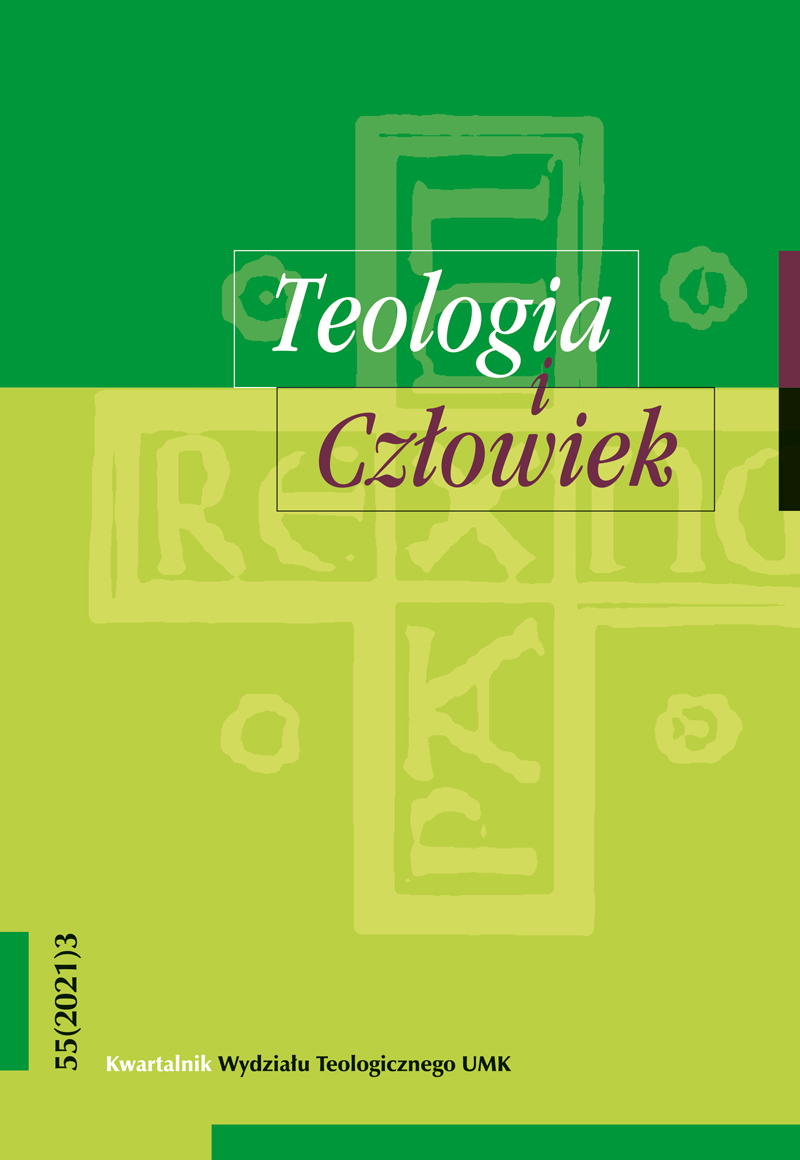From the Person to the Institution: Religious Freedom and Institutions in Democratic States
DOI:
https://doi.org/10.12775/TiCz.2021.017Palabras clave
Religious Freedom, Person, Institution, DemocracyResumen
Based on the assumption that the fundamental rights of people in most democratic states are governed by the personalist principle and that, of course, the religious freedom of the individual is an indisputable fundamental right, this paper reflects on the implications of these premises in the institutional field.
The article consists of four chapters: the first two chapters are of a more general nature, and the next two chapters apply the general principles to the Spanish context.
The first part discusses the personalist foundation that forms the basis of laws in democratic states. The author highlights the fact that the ethical value of the dignity of every human person provides an axiological foundation for the rules and fundamental laws enacted in the democratic constitutional order.
The second part of the paper is devoted to the principle of subsidiarity, which – in a way – constitutes a bridge that makes it possible to transpose the dignity of the person to the functioning of the institutions that operate within a democratic state. Subsidiarity is an essential complement to personalism as it prioritizes the activity of the person that should be supported by the institutions of the State.
The application of these general principles to the situation in Spain exemplifies them in the context of the understanding and enforcement of the right to religious freedom. By presenting specific legal solutions implemented in Spain in recent years, the author illustrates the challenges that the right to religious freedom is facing in modern democracies. The paper offers a compelling study of the joint effect of the principle of secularism in a democratic State and the principle of cooperation between the State and religious institutions (a concept referred to in the Spanish model as “positive secularism”) as they act upon social life to guarantee the implementation of a fundamental right of human persons: the right to religious freedom.
Citas
Alzaga Villaamil, Ó. (dir.), Comentario a las Leyes Políticas, vol. I, Madrid, Revista de Derecho Privado, 1984.
Compendio de la Doctrina Social de Iglesia, (https://www.vatican.va/roman_curia/pontifical_councils/justpeace/documents/rc_pc_justpeace_doc_20060526_compendio-dott-soc_sp.html)
Diaz-Salazar, R., El factor católico en la política española. Del nacionalcatolicismo al laicismo, Madrid, PPC, 2006.
Fernández Segado, F. (coord.), Dignidad de la persona, derechos fundamentales, Justicia Constitucional, Madrid, Dykinson, 2008.
Lucas Verdú, P., Estimativa y política constitucionales, Madrid, Universidad Complutense, 1984.
Maunz, Th., Dürig, G., GG Kommentar, München, C.H. Beck, 1976.
Oehling de los Reyes, A., "El concepto constitucional de dignidad de la persona: formas de comprensión y modelos predominantes de recepción en la Europa continental", Revista española de Derecho constitucional (91, enero-abril 2011), pp. 135-178.
Ollero, A., "Laicidad positiva, igualdad consiguiente: diálogo sobre el artículo 16 de la Constitución española", Persona y Derecho (77, 2017/2), pp. 93-131.
Descargas
Publicado
Cómo citar
Número
Sección
Licencia
Derechos de autor 2021 Theology and Man

Esta obra está bajo una licencia internacional Creative Commons Atribución-SinDerivadas 4.0.
CC BY ND 4.0. Posiadaczem prawa autorskiego (Licencjodawcą) jest Autor, który na mocy umowy licencyjnej udziela nieodpłatnie prawa do eksploatacji dzieła na polach wskazanych w umowie.
- Licencjodawca udziela Licencjobiorcy licencji niewyłącznej na korzystanie z Utworu/przedmiotu prawa pokrewnego w następujących polach eksploatacji: a) utrwalanie Utworu/przedmiotu prawa pokrewnego; b) reprodukowanie (zwielokrotnienie) Utworu/przedmiotu prawa pokrewnego drukiem i techniką cyfrową (e-book, audiobook); c) wprowadzania do obrotu egzemplarzy zwielokrotnionego Utworu/przedmiotu prawa pokrewnego; d) wprowadzenie Utworu/przedmiotu prawa pokrewnego do pamięci komputera; e) rozpowszechnianie utworu w wersji elektronicznej w formule open access na licencji Creative Commons (CC BY-ND 3.0) poprzez platformę cyfrową Wydawnictwa Naukowego UMK oraz repozytorium UMK.
- Korzystanie przez Licencjobiorcę z utrwalonego Utworu ww. polach nie jest ograniczone czasowo ilościowo i terytorialnie.
- Licencjodawca udziela Licencjobiorcy licencji do Utworu/przedmiotu prawa pokrewnego nieodpłatnie na czas nieokreślony
PEŁEN TEKST UMOWY LICENCYJNEJ >>
Stats
Number of views and downloads: 530
Number of citations: 0



